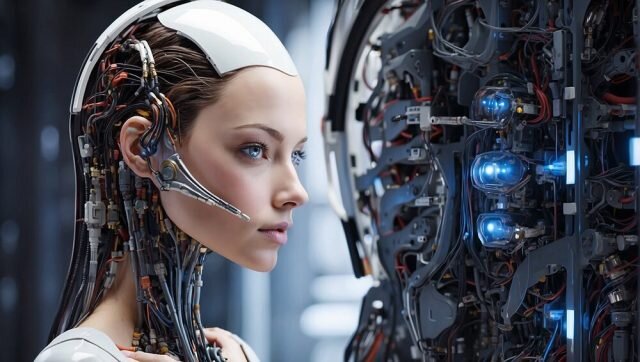
Artificial Intelligence (AI) has rapidly evolved over the past few decades, transforming from a conceptual idea into a critical component of modern technology. As AI continues to advance, it presents a plethora of opportunities along with significant challenges. Understanding both aspects is crucial for harnessing AI’s full potential while mitigating its risks.
Opportunities
1. Enhanced Efficiency and Productivity
AI has the potential to revolutionize various industries by automating routine and complex tasks. From manufacturing to healthcare, AI-driven systems can perform tasks faster and more accurately than humans, leading to increased productivity and efficiency. This automation can free up human workers to focus on more creative and strategic activities.
2. Improved Healthcare
In the healthcare sector, AI can enhance diagnostic accuracy, predict patient outcomes, and personalize treatment plans. Machine learning algorithms can analyze vast amounts of medical data to identify patterns and correlations that may be missed by human eyes. This can lead to earlier detection of diseases and more effective treatments.
3. Advancements in Transportation
AI is at the forefront of developing autonomous vehicles, which have the potential to reduce traffic accidents, decrease congestion, and provide mobility solutions for those unable to drive. Additionally, AI can optimize logistics and supply chain management, improving the efficiency of goods transportation.
4. Enhanced Decision-Making
AI systems can analyze large datasets to provide insights and predictions that support decision-making processes. In business, this can lead to more informed strategies and better resource allocation. In governance, AI can help in policy formulation and public service delivery.
5. Personalized Experiences
AI can tailor experiences to individual preferences in areas such as entertainment, education, and retail. Recommendation systems used by streaming services and e-commerce platforms are prime examples of how AI enhances user experience by predicting and catering to personal tastes.
Challenges
1. Ethical and Bias Concerns
AI systems can inadvertently perpetuate and amplify biases present in their training data. This can lead to unfair outcomes in critical areas like hiring, law enforcement, and lending. Ensuring that AI systems are fair and unbiased requires rigorous testing and ethical guidelines.
2. Privacy Issues
The use of AI often involves the collection and analysis of large amounts of personal data, raising significant privacy concerns. Safeguarding this data against misuse and ensuring that AI applications comply with privacy regulations is a major challenge.
3. Job Displacement
While AI can create new job opportunities, it also poses a threat to existing jobs, particularly those involving routine or repetitive tasks. This potential for job displacement necessitates strategies for workforce retraining and education to prepare workers for new roles in an AI-driven economy.
4. Security Risks
AI systems can be vulnerable to attacks and manipulation. Adversarial attacks can deceive AI models, leading to incorrect outputs. Ensuring the security and robustness of AI systems is essential to prevent such scenarios.
5. Regulatory and Governance Issues
The rapid advancement of AI technology outpaces the development of regulatory frameworks. Establishing effective governance and regulatory mechanisms is crucial to ensure that AI is developed and deployed responsibly. This includes addressing issues related to accountability, transparency, and ethical use.
Conclusion
The future of AI holds immense promise across various domains, offering opportunities for unprecedented advancements and improvements in numerous aspects of human life. However, realizing these benefits requires addressing significant challenges related to ethics, privacy, job displacement, security, and regulation. A balanced approach that promotes innovation while safeguarding against potential risks is essential for harnessing the full potential of AI in the future.
